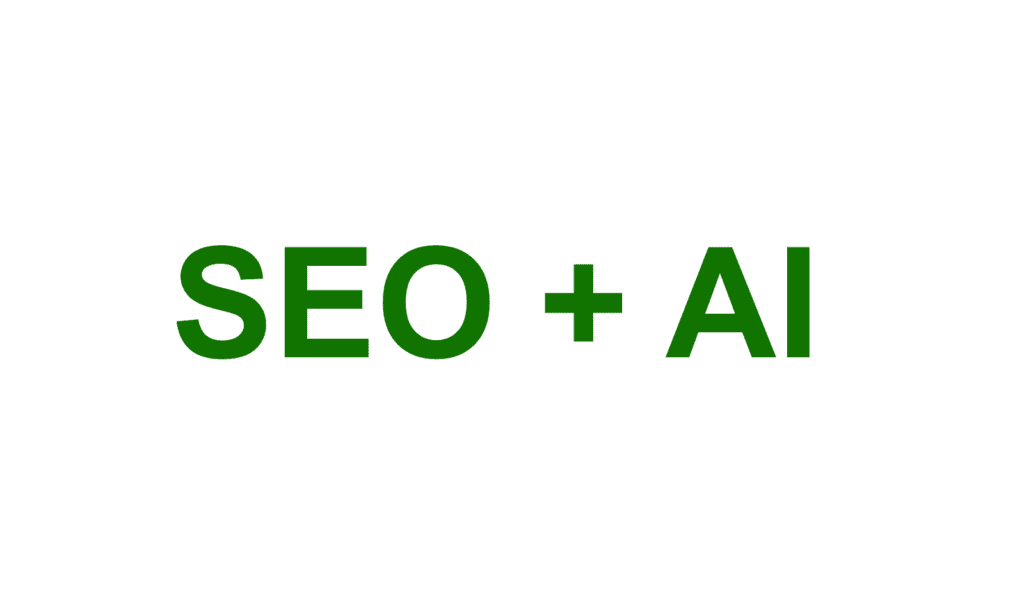In the ever-evolving world of digital marketing, staying ahead of the curve is not just an advantage; it’s a necessity.
As smart marketers, we’re constantly on the lookout for innovative tools and strategies to elevate our SEO game.
Enter artificial intelligence (AI), a game-changer that’s reshaping the landscape of search engine optimization.
10 SEO Tactics AI Can Automate
First I have to mention: AI is still unable to build out your SEO strategy in a vacuum.
You still need to have your approach in mind before bringing it in.
But AI can work wonders for streamlining the process of executing on that strategy, and it can complete key tactics on your behalf. Imagine the time you can save with an Search Engine Optimization assistant to execute on the “grunt work” part of SEO!
In this post, we’ll explore 10 SEO tactics where AI steps into the spotlight, performing with a level of precision and efficiency that’s nothing short of impressive.
1. Semantic Keyword Analysis
Semantic keyword analysis is one area where AI truly shines.
Forget having only manual keyword research at your disposal.
AI algorithms can now understand the context and intent behind search queries.
By analyzing vast datasets and identifying semantic relationships between words, AI can uncover hidden opportunities.
With this information in hand, you will be able to optimize our content for the most relevant and high-converting keywords.
2. Content Generation and Optimization
AI-driven content generation tools are not here to replace us.
They’re here to enhance our creative process.
These tools use natural language processing to understand the nuances of language, producing high-quality, contextually relevant content.
From crafting compelling blog posts to optimizing product descriptions, AI ensures that your content speaks the language of both search engines and our target audience.
3. Predictive Analytics for SEO Strategy
Gone are the days of relying solely on historical data to shape our SEO strategy.
AI introduces predictive analytics, forecasting future trends and helping us make data-driven decisions.
By analyzing user behavior, search patterns, and market trends, AI empowers us to stay ahead of the competition, anticipating shifts in the digital landscape and adjusting our strategies accordingly.
4. Dynamic Meta Tag Optimization
AI doesn’t just stop at understanding content. It excels in dynamic meta tag optimization.
From crafting attention-grabbing meta titles to generating concise and relevant meta descriptions, AI ensures that every piece of metadata is not just a placeholder but a strategic element in our SEO arsenal.
5. Voice Search Optimization
With the rise of voice-activated devices, voice search optimization has become an important add-on to our SEO task list.
AI algorithms, powered by natural language processing, help us understand the nuances of conversational queries.
This in turn helps with optimizing content for the way people speak, not just type.
This is how you can capture the growing audience of people who are engaging with voice-activated search.
6. Automated A/B Testing for UX Enhancement
User Experience (UX) is a key aspect of effective SEO.
AI automates A/B testing, analyzing user interactions and behavior to determine the most effective variations of our website elements.
From headlines to CTAs, AI-driven A/B testing takes the guesswork out of optimizing our site for user engagement and conversion.
7. Link Building Strategy Optimization
AI doesn’t just streamline link building. It has the power to optimize your entire strategy.
By analyzing the relevance and authority of potential link sources, AI algorithms help us focus our efforts on building high-quality, authoritative backlinks.
This strategic approach ensures your link building efforts align with search engine algorithms, boosting your site’s credibility and visibility.
8. Real-Time SEO Performance Monitoring
No more waiting for weekly or monthly reports to gauge the performance of our SEO efforts.
AI enables real-time monitoring of SEO performance, providing instant insights into keyword rankings, website traffic, and user engagement.
This agility allows us to make immediate adjustments, ensuring we’re always on top of our SEO game.
9. Local SEO Optimization with Geotargeting
For businesses targeting local markets, AI offers geotargeting capabilities that take local SEO to the next level.
By analyzing location-based search patterns and user behavior, AI helps us optimize our content, meta tags, and business listings for specific geographic regions.
This localized approach ensures we show up prominently in local search results, capturing the attention of our target audience.
10. Competitor Analysis and Strategy Refinement
AI doesn’t just help us understand our own performance; it’s a powerhouse for competitor analysis.
By analyzing the strategies of our competitors, AI provides valuable insights into keyword targeting, content strategy, and backlink profiles.
Armed with this intelligence, we can refine our own SEO strategy, staying a step ahead in the ever-competitive digital landscape.
Conclusion
In conclusion, the integration of AI into our SEO toolkit is not just a technological leap. It’s a strategic necessity.
From semantic keyword analysis to real-time performance monitoring, AI empowers us to execute SEO tactics with unparalleled precision and efficiency.
As smart marketers, we need to embrace these AI-driven strategies.
This is what is leading the way in the dynamic world of digital marketing, so it’s not just a passing fad.
The future of SEO is here, and it’s driven by the transformative capabilities of artificial intelligence.
Tommy Landry
Latest posts by Tommy Landry (see all)
- The Great Decoupling of Search - January 13, 2026
- How to Use AI to Accelerate Content Creation Without Losing Authenticity - January 6, 2026
- B2B SEO in 2025: Winning Visibility in AI-Curated Buyer Journeys - December 16, 2025





